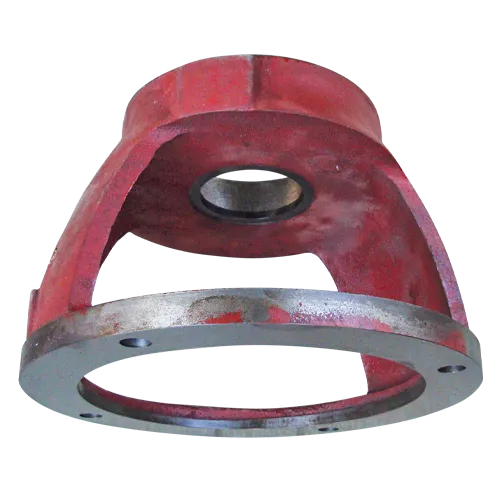Mobile:+86-311-808-126-83
Email:info@ydcastings.com
Durable Stainless Steel Impeller for Enhanced Performance and Longevity
Impeller in Stainless Steel A Key Component in Modern Engineering
Impellers are crucial devices that facilitate fluid movement in various applications across multiple industries, including chemical processing, water treatment, food production, and HVAC systems. Among the various materials used in the construction of impellers, stainless steel has become increasingly favored due to its exceptional properties and versatility. This article explores the significance of stainless steel impellers, their benefits, and their applications.
Stainless steel impellers are designed to optimize fluid flow by converting rotational energy into hydrodynamic energy. The unique design of these components allows them to efficiently move liquids, slurries, and gases, making them a vital part of pumps, mixers, and turbines. The selection of materials for these impellers is imperative, and stainless steel stands out due to its resistance to corrosion, durability, and ease of maintenance.
Impeller in Stainless Steel A Key Component in Modern Engineering
Additionally, stainless steel impellers boast exceptional strength and structural integrity. They can withstand high pressure and extreme temperatures, making them suitable for various demanding applications. This mechanical robustness means that stainless steel impellers can maintain performance levels even under challenging operational conditions, such as in the aerospace or marine industries, where both reliability and efficiency are paramount.
impeller stainless steel

Another important attribute of stainless steel impellers is their hygienic properties. In food and pharmaceutical manufacturing, sanitation is critical. Stainless steel surfaces are easy to clean and are less likely to harbor bacteria and other pathogens. This characteristic not only helps in adhering to health regulations but also ensures product purity and quality, which is vital for consumer safety.
Moreover, stainless steel impellers are versatile and can be manufactured in various shapes and sizes to meet specific operational requirements. Customization enhances their effectiveness and efficiency in applications ranging from pumping water in municipal systems to handling viscous liquids in industrial processes. Advanced manufacturing techniques, including computer-aided design (CAD) and precision machining, allow for the creation of geometries that optimize performance while minimizing energy consumption.
Despite their advantages, there are considerations to keep in mind when using stainless steel impellers. The initial cost can be higher compared to impellers made from plastics or other materials. However, the longevity and reduced maintenance costs often justify this initial investment over time. Furthermore, the choice of stainless steel grade is critical; using higher-grade alloys can enhance corrosion resistance but may increase costs. Therefore, selecting the appropriate type of stainless steel based on the specific application conditions is essential.
In conclusion, stainless steel impellers represent a reliable and effective choice for fluid handling in diverse industries. Their corrosion resistance, strength, hygiene, and customization options make them indispensable in various applications. As industries continue to prioritize efficiency, durability, and safety, the demand for stainless steel impellers is likely to rise, solidifying their role as a cornerstone in modern engineering solutions. Whether in a bustling manufacturing facility or a sophisticated water treatment plant, stainless steel impellers are key players in ensuring the smooth and efficient operation of systems worldwide.
-
Why Should You Invest in Superior Pump Castings for Your Equipment?NewsJun.09,2025
-
Unlock Performance Potential with Stainless Impellers and Aluminum End CapsNewsJun.09,2025
-
Revolutionize Your Machinery with Superior Cast Iron and Aluminum ComponentsNewsJun.09,2025
-
Revolutionize Fluid Dynamics with Premium Pump ComponentsNewsJun.09,2025
-
Optimizing Industrial Systems with Essential Valve ComponentsNewsJun.09,2025
-
Elevate Grid Efficiency with High-Precision Power CastingsNewsJun.09,2025











